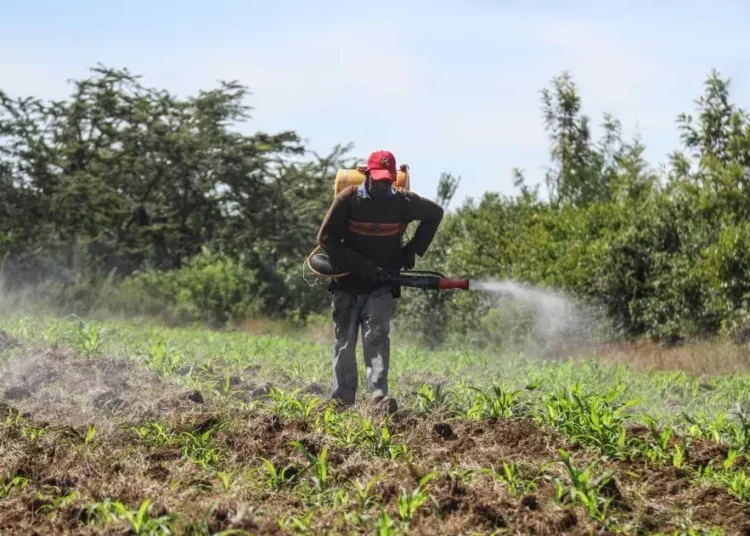Federal Ministry of Environment in a project sponsored by the Centre for Pesticide Suicide Prevention (CPSP), University of Edinburgh is collaborating with the Federal Ministry of Agriculture and Food Security, National Agency for Food and Drug Administration (NAFDAC) to strengthen chemical safety as well as phase out highly hazardous pesticides (HHPs) in Nigeria.
On behalf of the Nigerian Federal Ministry of Environment, the director, Department of Pollution Control and Environmental Health, Engr. Dr. Bahijjahtu Abubakar in her opening remarks at the Inception Workshop of the Project yesterday in Abuja said the workshop aims to raise awareness about the dangers of HHPs, discuss strategies for improved decision-making, and develop effective poisoning prevention measures.
Dr. Abubakar said the theme of the workshop is “Addressing highly hazardous pesticides responsible for poisoning and death in Nigeria for improved (informed) decision-making and effective poisoning prevention.” He also elaborated that poisoning through Pesticides is a major clinical and public health problem in agricultural communities especially in low and middle-income countries (LMICs). She added that poisoning through pesticides can happen through intentional, accidental, or occupational exposures.
She said efforts to address HHP-related issues in Nigeria are gradually gaining momentum as government bodies are implementing measures such as public engagement, training, and regulatory adjustments to strengthen chemical safety.
While emphasizing that this project was developed as part of the steps to implement the Global Framework on Chemicals (GFC) in Nigeria, she revealed that its target is that by 2035, stakeholders should have taken effective measures to phase out Highly Hazardous Pesticides in Agriculture where she explained, the risks have not been managed considering the availability of safer and affordable alternatives.
“There is an urgent need for policy frameworks, stricter regulations, capacity building, and public awareness to phase out HHPs and promote safer alternatives. Bio-pesticides and Integrated Pest Management (IPM) practices should also be explored as sustainable solutions. This project will ensure that the number of pesticide poisoning and suicide deaths in Nigeria are substantially reduced,“ she said.
In his remark, the Head of Global Strategy at the CPSP, Edinburgh University, Prof Keith Tyrell said they are in the country to collect information on the scale of pesticide poisoning in Nigeria adding that their meeting will include to give information for the ministries and pesticide regulators in order to take action and tackle what he described as a largely hidden problem in Nigeria.
Professor Tyrell who worried that around 150,000 people die every year from pesticide suicides and nearly 300 million people are poisoned, maybe not fatally, but from pesticides annually, also revealed that their aim in Nigeria will involve to assist in identifying which pesticides are involved in most poisonings as well as identify safer alternatives.
“So what this project will do is we‘ll try to identify which pesticides are involved in most poisonings in the country and then identify safer alternatives so that we can end this problem. So what Nigeria can expect is more information, more data to help understand who‘s being poisoned, what they‘re being poisoned by, and that information will be really useful for the government, so that the government can then say, okay, what is this pesticide being used for? Is it really critical? Can we find a safer alternative? And then ban the problem pesticide”, he said,





